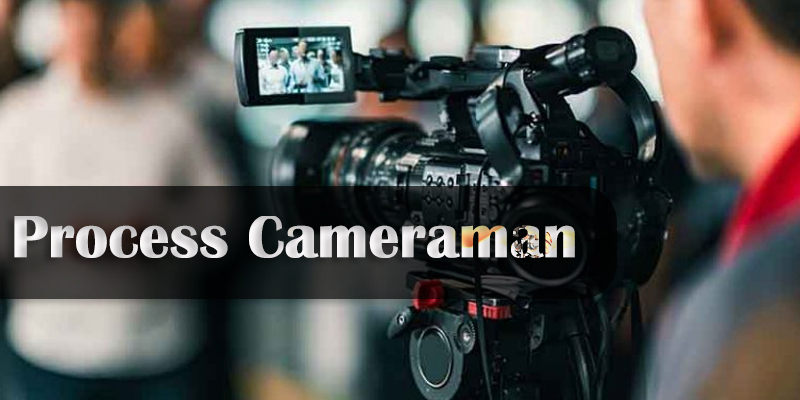iti
17 April 2025

ITI Process Cameraman Syllabus (English)
Course Overview
- Trade Name: Process Cameraman
- Duration: 1 Year (2 Semesters)
- NSQF Level: Level 4
- Eligibility: 10th Grade Pass with Science
- Objective: To train candidates in operating process cameras, preparing negatives/positives, and handling pre-press reproduction processes, equipping them for roles as process cameramen, pre-press technicians, or plate makers in printing presses, publishing houses, or graphic studios, or for self-employment in pre-press services.
- Certification: National Trade Certificate (NTC) by NCVT
Detailed Syllabus
Semester 1
Trade Theory
- Introduction to Printing: Overview of printing processes (offset, gravure), role of process cameraman.
- Safety Practices: Handling chemicals (developers, fixers), PPE (gloves, goggles), darkroom safety, electrical hazards.
- Process Camera Basics: Types (vertical, horizontal), components (lens, bellows, copyboard), operation principles.
- Photography Fundamentals: Exposure, aperture, shutter speed; basics of light and optics in reproduction.
- Film and Sensitized Materials: Types (orthochromatic, panchromatic), film sizes, storage, handling.
- Darkroom Techniques: Developing, fixing, washing films; chemical preparation and usage.
- Line and Halftone Photography: Principles of line negatives, dot formation in halftones, screen angles.
Trade Practical
- Safety Drills: Using PPE, handling chemicals safely, setting up darkroom ventilation, emergency procedures.
- Camera Operation: Setting up process cameras, adjusting focus, aligning copyboards.
- Exposure Practice: Exposing films for line and halftone negatives, controlling exposure time.
- Film Processing: Developing films in trays, fixing and washing negatives, checking for clarity.
- Line Photography: Producing line negatives from artworks, ensuring sharp edges (±0.1mm).
- Halftone Photography: Creating halftone negatives with screens (100-150 LPI), verifying dot quality.
- Project Work: Producing a set of line and halftone negatives for a sample artwork.
Hours: Theory: 160 hours | Practical: 240 hours
Semester 2
Trade Theory
- Advanced Camera Techniques: Color separation, duotone reproduction, contact printing.
- Screen Printing Basics: Screen preparation, exposure for stencils, applications in reproduction.
- Plate Making: Types (offset, letterpress), coating, exposure, development for printing plates.
- Quality Control: Inspecting negatives for defects, density measurement with densitometers, ISO standards.
- Digital Pre-Press: Introduction to scanners, digital imaging, Photoshop for image correction.
- Printing Processes: Interaction of process camera outputs with offset and gravure presses.
- Entrepreneurship: Starting a pre-press service, costing, market trends in printing industry.
Trade Practical
- Color Separation: Producing CMYK negatives, aligning separations for accurate color reproduction.
- Screen Printing Tasks: Exposing screens for stencils, testing prints for clarity.
- Plate Making: Preparing offset plates, exposing and developing with process camera negatives.
- Quality Checks: Measuring negative density, inspecting plates for scratches or pinholes.
- Digital Work: Scanning artworks, correcting images in Photoshop (color balance, contrast).
- Press Integration: Supplying negatives/plates for offset printing, verifying print quality.
- Project Work: Creating a complete pre-press workflow (negatives, plates) for a multi-color poster print.
Hours: Theory: 160 hours | Practical: 240 hours
Additional Components
- Workshop Calculation and Science
- Calculations: Exposure time, screen ruling calculations, chemical dilution ratios.
- Science: Optics (refraction, focal length), photochemistry, light spectrum in color separation.
- Hours: 80 hours/year
- Engineering Drawing
- Drawings: Camera layouts, negative/plate schematics, color separation diagrams.
- Hours: 80 hours/year
- Employability Skills
- Communication: Client interaction, technical reporting, teamwork in printing units.
- IT Literacy: Using pre-press software, digital scanners, online printing resources.
- Soft Skills: Time management, resume writing, interview preparation.
- Hours: 60 hours/year
Assessment and Certification
- Exams:
- Theory: Written exams per semester (MCQs, descriptive questions).
- Practical: Tasks like producing negatives, color separations, plate making, quality checks.
- Evaluation Criteria: Negative/plate accuracy, image clarity, safety adherence, print-ready output.
- Certification: NCVT National Trade Certificate (NTC) upon passing both semesters, globally recognized.
Career Opportunities
- Employment: Process cameraman, pre-press technician, plate maker in printing presses, publishing houses, or graphic studios.
- Self-Employment: Pre-press service provider, freelance plate making, consultancy for printing firms.
- Further Studies: Diploma in Printing Technology, certifications in digital pre-press or offset printing.
Trade Type
- 9 views